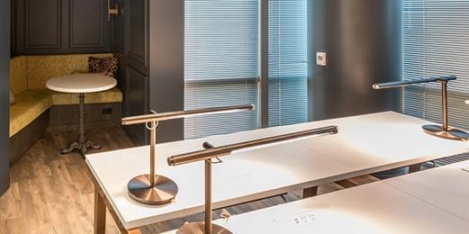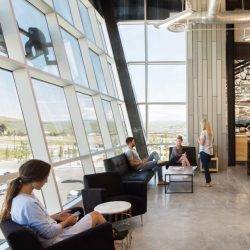September 6, 2018
Leading a hybrid future workforce of robots, episodic employees and gig leaders
 Visions of hybrid workforces, episodic employees, gig leadership and acceptable failure have been unearthed in a new study, ‘Work 2028: trends, dilemmas and choices’, revealing business and society leaders’ projections for the fourth industrial revolution. The project was led by Professor Bernd Vogel at Henley Business School and run in collaboration with Deutsche Telekom and Detecon Consulting, who commissioned Henley to carry out the survey. The research involved interviews with over 50 influential leaders from across a variety of sectors and countries including senior figures from Amazon and Unilever to look at the challenges facing organisations and their future workforce.
Visions of hybrid workforces, episodic employees, gig leadership and acceptable failure have been unearthed in a new study, ‘Work 2028: trends, dilemmas and choices’, revealing business and society leaders’ projections for the fourth industrial revolution. The project was led by Professor Bernd Vogel at Henley Business School and run in collaboration with Deutsche Telekom and Detecon Consulting, who commissioned Henley to carry out the survey. The research involved interviews with over 50 influential leaders from across a variety of sectors and countries including senior figures from Amazon and Unilever to look at the challenges facing organisations and their future workforce.





















 Nearly half of UK managers (45.1 percent) are ill-prepared for the role, and a quarter (25 percent) of employees say their manager does not have the right skills for effective management, claims new research by Bridge by Instructure. The study, based on interviews of 1,000 managers and employees across the UK on their attitudes towards both management and learning and development, revealed that more than half of those who responded (53.4 percent) think managers need more training to perform as a manager and, almost half (45 percent) think managers need to be given time to operate as a manager rather than having those responsibilities ‘bolted on’ to their existing role.
Nearly half of UK managers (45.1 percent) are ill-prepared for the role, and a quarter (25 percent) of employees say their manager does not have the right skills for effective management, claims new research by Bridge by Instructure. The study, based on interviews of 1,000 managers and employees across the UK on their attitudes towards both management and learning and development, revealed that more than half of those who responded (53.4 percent) think managers need more training to perform as a manager and, almost half (45 percent) think managers need to be given time to operate as a manager rather than having those responsibilities ‘bolted on’ to their existing role. 











September 10, 2018
The evolution of the workplace conversation in ten graphs
by Mark Eltringham • Comment, Facilities management, Technology, Workplace design
Based on Google Trends data since 2004 and without comment.
Main image: Herman Miller Living Office